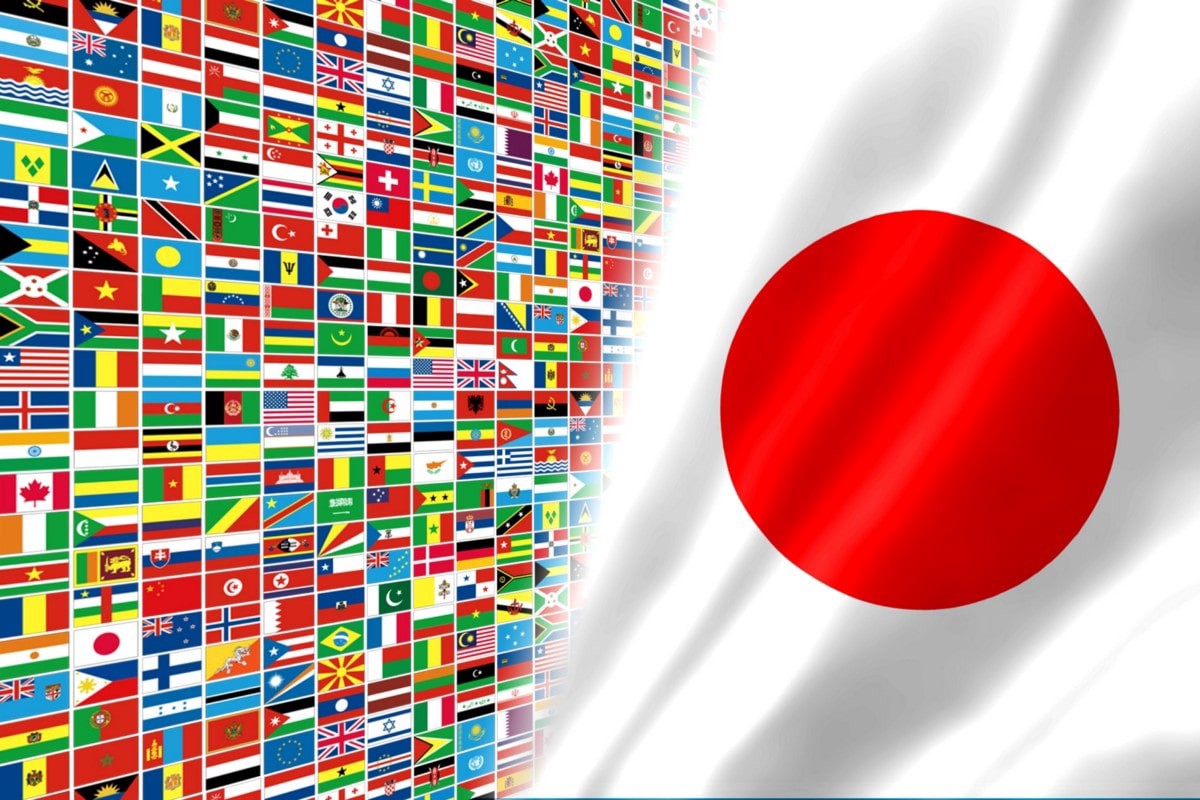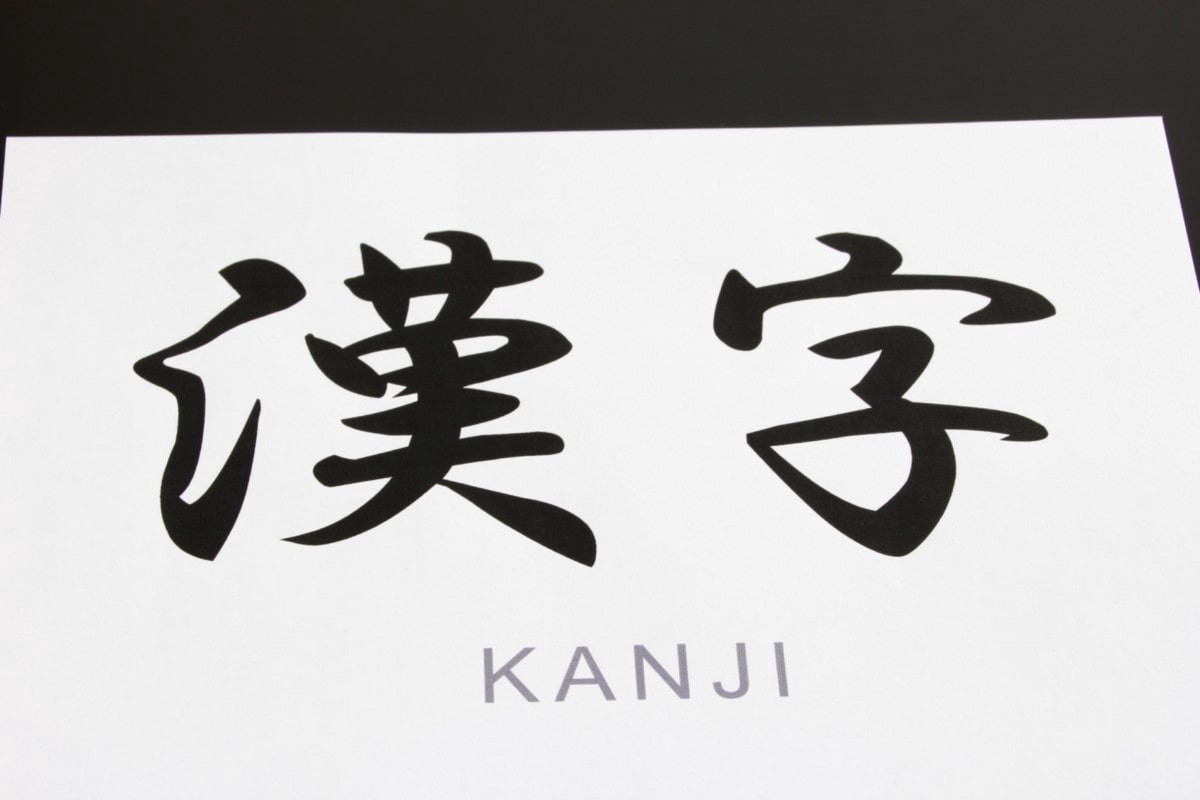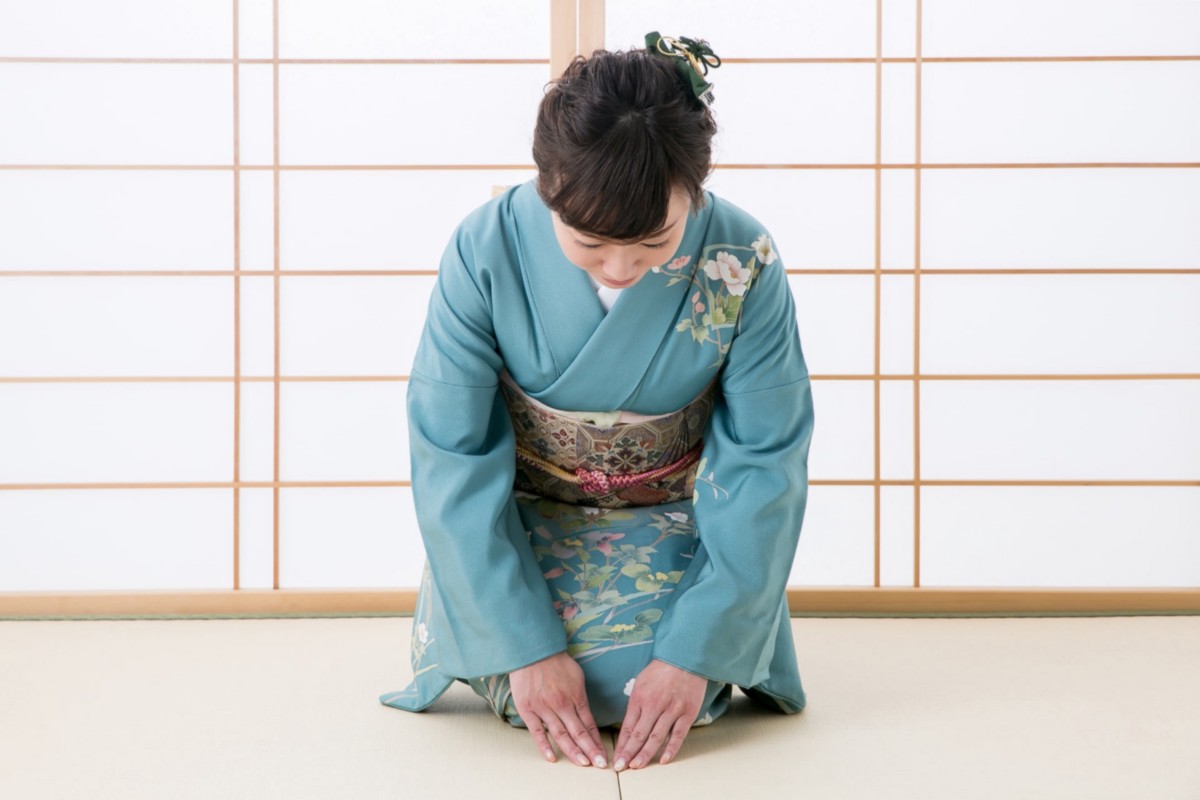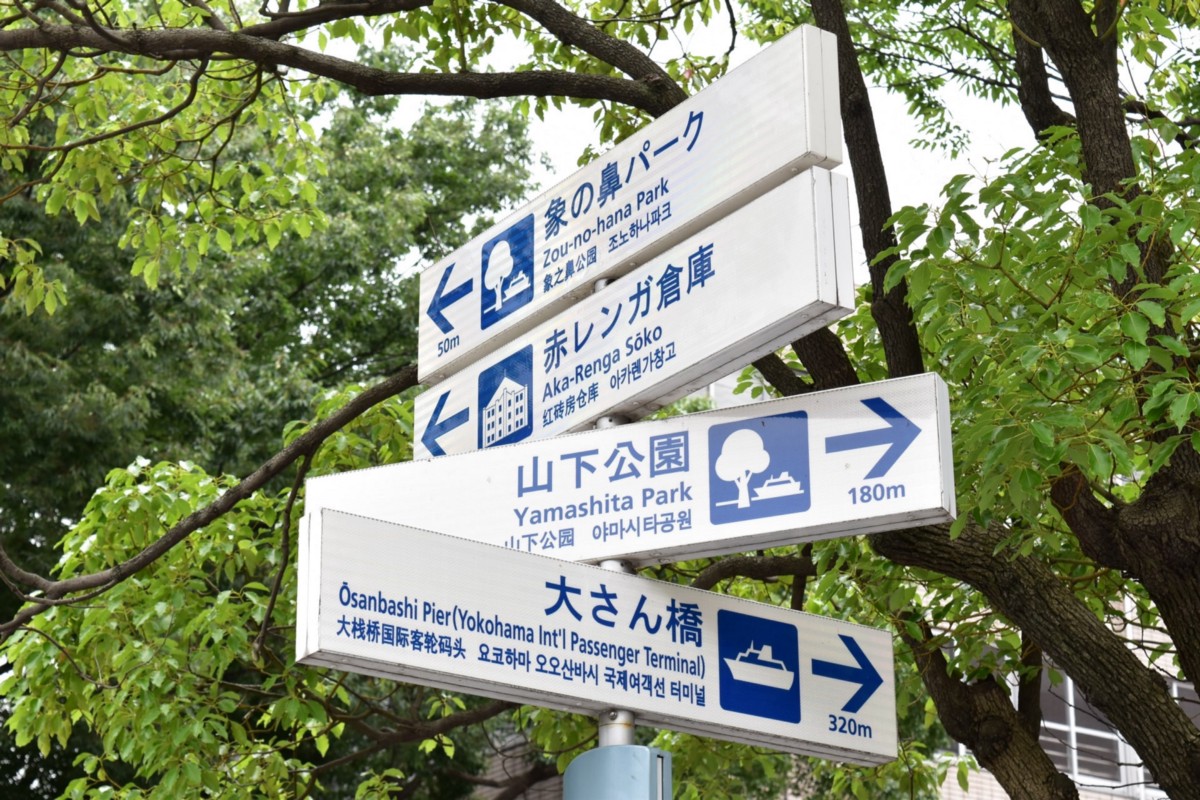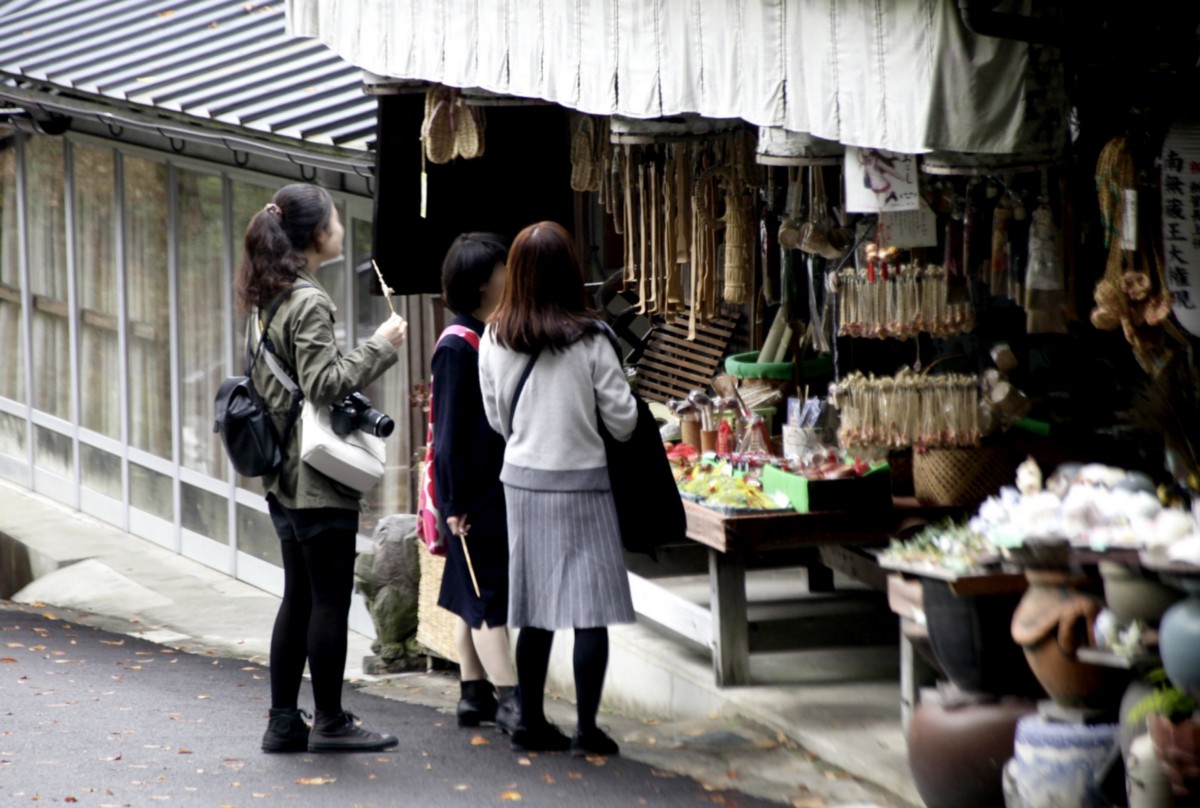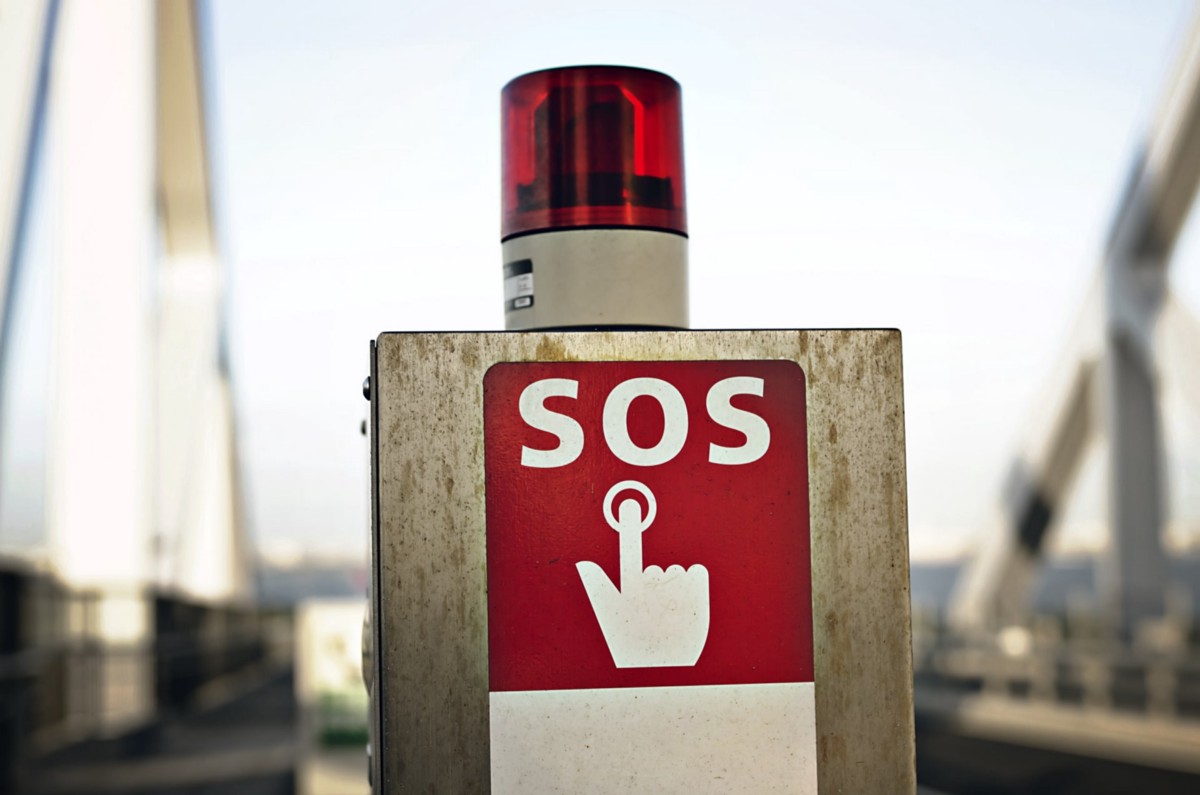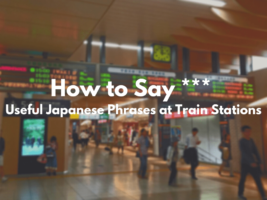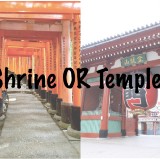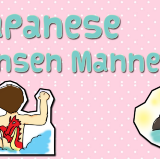Japanese Travel Phrases Useful for Your Trip to Japan
Japanese Language Guide with Easy Words like Sayonara and Arigato
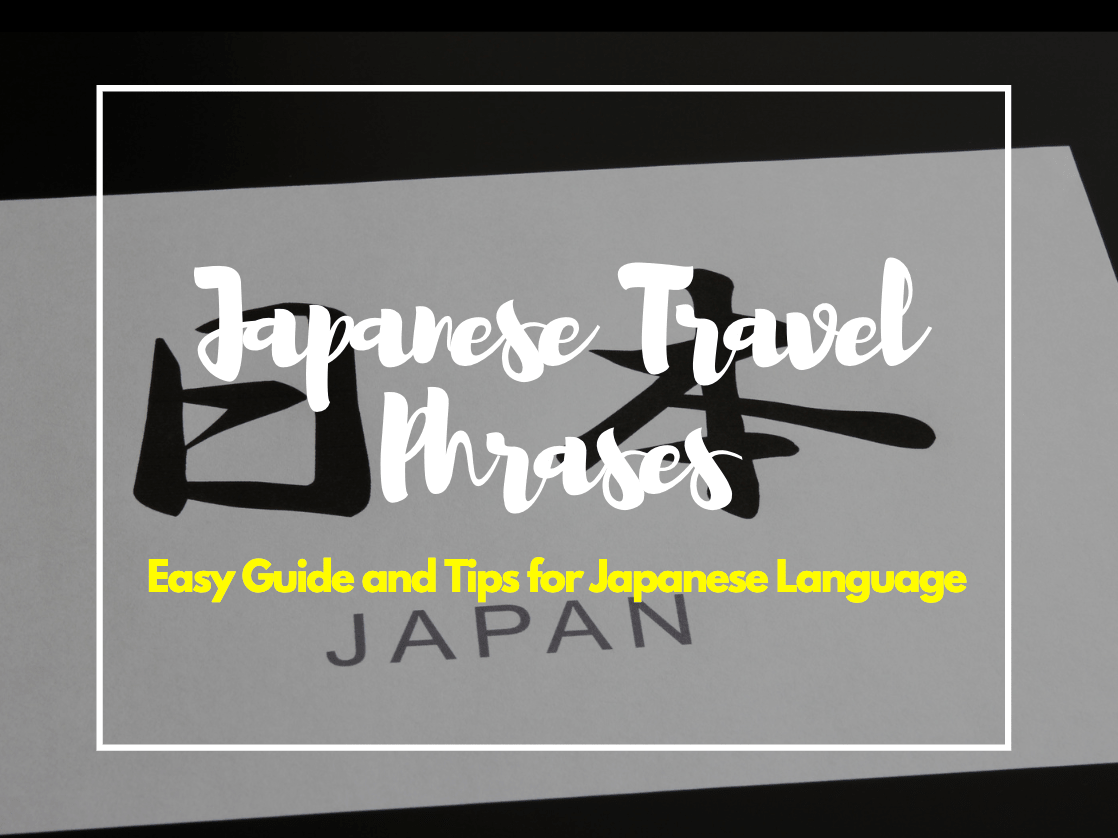
Japanese is regarded as one of the most difficult languages for English speakers to learn, however, it is actually easy to pronounce it. Here are easy Japanese travel phrases for your trip to Japan!
Japanese, the official language only in Japan, is a quite unique language around the world, and almost all of over 100 million people in Japan speaks Japanese. Anyone can communicate with each other in the same language in Japan while there are a large number of dialects by area.
Looking back into history, it is said that Japanese is an isolated language since it is not able to trace of its history and does not have no decisive genealogical relationship with other languages. English speakers all over the world think Japanese is one of the most difficult languages to learn as well as Chinese and Arabic.
On the other hand, you can use Japanese on a trip to Japan in fact. You have trouble traveling in Japan without understanding Japanese language? It’s not like that at all. It is much easier to pronounce Japanese words rather than read and write. Some Japanese phrases have become famous since they were used in lots of foreign movies like Sayonara (which means Goodbye in Japanese).
Today, I’d like to introduce easy but essential Japanese travel phrases and tips for speaking Japanese. Japanese people feel pleased and an affinity with you when you speak even a word in Japanese.
Writing System
Japanese is totally different from other languages in that it is divided into 3 types of letter in the modern writing system: kanji, hiragana and katakana.
Kanji, a Chinese character, has its origin in China and each Kanji has its original meaning. For example, this kanji “木” means a tree. Many kanji are consist of combination with multiple kanji. “林” with 2 trees means grove and “森” with 3 trees mean forest. It is harder for foreign people to read and write kanji than hiragana and katakana since there are countless kanji with various combinations.
Hiragana and katakana were born in Japan to simplify the complicated kanji. Each of hiragana and katakana does not have its meaning as opposed to kanji and just represents phonetic sound.
Pronunciation
In contrast with the difficulty of writing Japanese, it is much easier for English speakers to pronounce Japanese words. Japanese phonetic sound can be replaced with the sounds from the alphabet. There are a few points for telling Japanese people a word.
One is a pitch which Japanese pronunciation is based on while English pronunciation is based on an accent. The same hiragana word sometimes has different meanings depends on which part a high or low pitch is located at.
For instance, a Japanese word “あめ (ame)” stands for two distinct nouns with different kanji: “雨 (rain)” “飴 (candy)”.
“雨 (rain)” starts off with a high pitch accent with “あ (a)”, and “飴 (candy)” with a high pitch accent with “め (me)”.
Another is how to pronounce a Japanese word, more exactly, how slow you can speak. It is important to clearly say a letter one by one. Please try to pronounce one letter at a time with the following phrases below.
Then, this is the list of essential Japanese phrases for a trip to Japan below. Here are also Japanese words useful in various scenes like at restaurants and stores and on the street. The pronunciation symbol below is composed of the alphabet and macrons (a straight bar ¯ placed above a letter like “ā ē ī ō ū”) which means a long vowel.
Essential Phrases
Daily
Good morning: o ha yō (おはよう)
Hello: kon ni chi wa(こんにちは)
Good Night: o ya su mi(おやすみ)
Bye: sa yō na ra(さよなら)
How are you?: o gen ki des ka(おげんきですか/お元気ですか)
Thank you: a ri ga tō(ありがとう)
Excuse me?: su mi ma sen(すみません)
Sorry: go men na sai(ごめんなさい)
Do you speak English?: ei go wa ha na se mas ka (えいごははなせますか/英語は話せますか)
I don’t understand: wa ka ri ma sen (わかりません)
Direction
Where is ~?: ~ wa do ko des ka(~はどこですか)
-Station: e ki (えき/駅)
-Bus Stop: ma su tei (バスてい/バス停)
-Restroom: to i re (トイレ)
-Tourist Information Center: kan ko an na i jo (かんこうあんないじょ/観光案内所)
I’m lost: mi chi ni ma yoi ma shi ta (みちにまよいました/道に迷いました)
Restaurant
I’d like to make a reservation: yo ya ku wo o ne gai shi mas (よやくをおねがいします/予約をお願いします)
What would you recommend?: o su su me wa nan des ka (おすすめはなんですか)
Do you have any vegetarian dishes?: be ji ta ri an ryō ri wa a ri mas ka (ベジタリアンりょうりはありますか/ベジタリン料理はありますか)
Do you have any Halal dishes?: ha ra ru ryō ri wa a ri mas ka (ハラルりょうりはありますか/ハラル料理はありますか)
It’s delicious: oi shī des (おいしいです)
Do you have an English menu?: Ei go no me nyū wa a ri mas ka (えいごのメニューはありますか/英語のメニューはありますか)
Shopping
How much is this?: ko re wa i ku ra des ka (これはいくらですか)
Can I try it on?: shi cha ku shi te mo ī des ka (しちゃくをしてもいいですか/試着をしてもいいですか)
Can I get this one?: ko re wo ku da sa i (これをください)
Emergency
Help!: ta su ke te (助けて)
Call the police: ke i sa tsu wo yon de (けいさつをよんで/警察を呼んで)
Call the ambulance: kyū kyū sha wo yon de (きゅうきゅうしゃをよんで/救急車を呼んで)
I’m allergic to ~: ~ no a re ru gi des (~のアレルギーです)
▽Learn more essential Japanese phrases in other situations!▽
Don’t hesitate to use those Japanese words above on your stay in Japan! It is no problem that you cannot speak Japanese at all, but it will be more enjoyable to communicate with Japanese people with a couple of Japanese phrases. For more info about Japan, please check out these articles below, too!
▽Related Articles▽
▼Editor’s Picks▼
Written by
Hi! I’m a writer and editor at Japan Web Magazine. Since 2017, I’ve written over 500 articles covering a wide range of Japan-related topics—must-visit travel spots, local food culture, helpful travel tips, seasonal events, anime, manga, and more. I travel all over Japan, from the snowy landscapes of Hokkaido to the tropical beaches of Okinawa. My hobbies, such as hunting for the best ramen shops and keeping up with the latest anime every season, help me share the magic of Japan with people from all over the world. Whether you're a first-time visitor or a Japan fan planning your dream trip, I want to help you experience the best of what this country has to offer. After traveling to many countries around the world, I still love Japan the most, and I continue to share information while making the most of my perspective as someone who was born and raised here. [Connect with me] ▷You can find more of my writing and follow my latest thoughts on Japan over on Medium. A bit more about me: [Traveler at heart] ▷Most unforgettable trip: Chichijima Island, a remote island that takes over 23 hours to reach by ferry from Tokyo! ▷Favorite neighborhood in Tokyo: Kagurazaka [Foodie life] ▷Obsessed with sushi and ramen ▷Proud foodie moment: Scored a seat at the legendary Sukiyabashi Jiro [Passionate otaku] ▷Favorite anime: March Comes in Like a Lion and Attack on Titan ▷Manga I live by: One Piece and Slam Dunk





